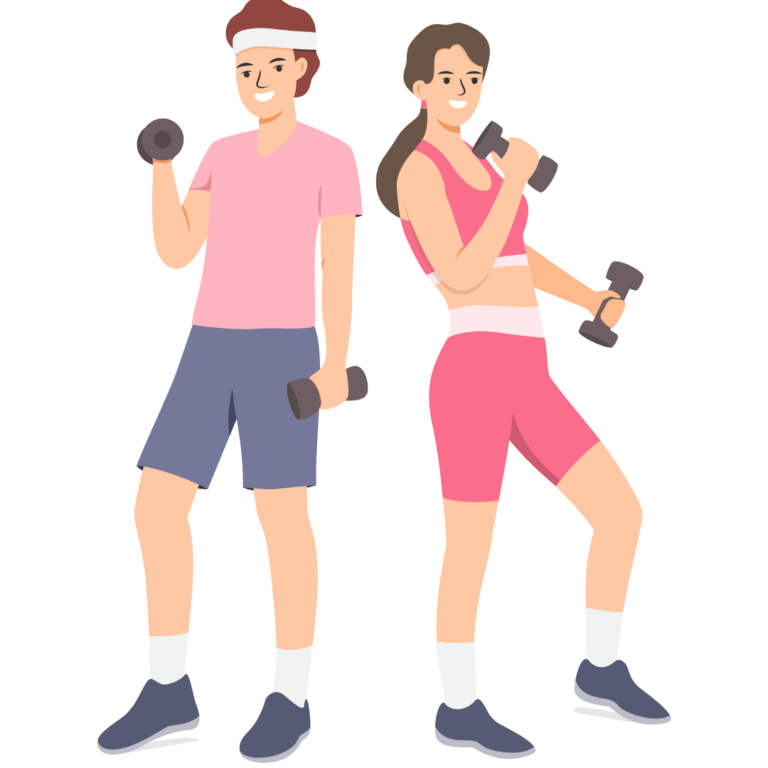To the average teenager, the words “exercise” or “working out” most likely bring about feelings of intense dread. They may be thinking about how arduous the process for even just preparing to work out is, nonetheless the part of exercising itself. However, exercising does not have to be so complicated, simply 30-minutes of moderate exercise five times a week is enough, and that too can be simplified even further into two 15-minute or even three 10-minute exercise sessions. This practice is important to maintain because it provides multiple benefits for mental health, including – but not limited – to reducing stress, improving anxiety and depression, boosting intelligence, and improving sleep.
Endorphins
Exercise can increase the production of endorphins, which are hormones – often called the body’s “natural painkillers” – released when the body feels pleasure and in response to pain. When the body feels pain or stress, nerves in the body send signals to the brain which then releases endorphins to block cells from receiving pain signals. These hormones essentially “turn off” pain in the body, which allows it to continue to function even in stressful situations in addition to decreasing feelings of stress, anxiety, depression, and other negative mental health conditions or feelings. Furthermore, even if the person is not stressed but is participating in activities that make them feel good, like exercise, the brain is triggered to release these hormones, enhancing their mood to make them happier beings overall.
Sleep
As noted before, exercise can reduce feelings of stress and symptoms of other mental health conditions through the release of endorphins, which can in turn allow for better sleep. Exercise not only helps people fall asleep faster and sleep longer but also enhances sleep quality by increasing the duration of deep sleep. This phase is crucial for muscle repair, strengthening the immune system, improving cognitive function and memory, and supporting other various physical and psychological aspects of health. However, experts strongly advise against exercising directly before bedtime, as it increases heart rate, blood pressure, and body temperature—none of which are favorable for sleep. Additionally, exercise stimulates the brain and nervous system, making a person feel alert and ‘ready,’ which is counterproductive when it’s time to wind down.
Boosting Brain
Firstly, as noted prior, exercise improves sleep and increases the production of endorphins, both of which can make someone feel happier and in a better mood overall, indirectly boosting their brain by allowing them to work better and have more focus. In addition, exercise has been shown to increase the rate of neurogenesis in the brain, a process by which new nerve cells – which send and receive signals – are generated. These cells are important for essentially all functions of
the brain, including (but not limited to) emotions, behavior, learning, communication, motor control, memory, etc. In addition, exercise also boosts the release of dopamine, a neurotransmitter involved with feelings of reward, motivation, mood regulation, and memory, amongst other things. Dopamine released during exercise allows for the person to feel satisfied afterwards, enhancing their mood overall for the rest of the day (similar to endorphins mentioned earlier). Dopamine could also potentially increase motivation to continue to exercise and perform other productive activities.
In conclusion, exercise is incredibly important for both physical and mental well being. Even a little bit by incorporating it into daily lifestyles, like walking somewhere you need to go to instead of driving the short distance, goes a long way, potentially allowing for other areas of life to improve significantly as well.
Written By: Nithya Rupavatharam, Mental H2O Youth Resource Writer
Sources:
Clinic, Cleveland. “Endorphins: What They Are and How to Boost Them.” Cleveland Clinic, Cleveland Clinic, 19 May 2022, my.clevelandclinic.org/health/body/23040-endorphins.
Mayo Clinic . “Exercise and Stress: Get Moving to Manage Stress.” Mayo Clinic, 18 Aug. 2020, www.mayoclinic.org/healthy-lifestyle/stress-management/in-depth/exercise-and-stress/art-20044 469#:~:text=Exercise%20 increases%20your%20 overall%20health.
Pacheco, Danielle. “Deep Sleep: What It Is and How Much You Need.” Sleep Foundation, 2 Dec. 2021, www.sleepfoundation.org/stages-of-sleep/deep-sleep.
Walden University. “5 Mental Benefits of Exercise | Walden University.” Waldenu.edu, Walden University, 16 May 2019,
www.waldenu.edu/online-bachelors-programs/bs-in-psychology/resource/five-mental-benefits-of- exercise.


